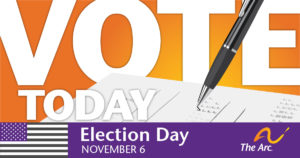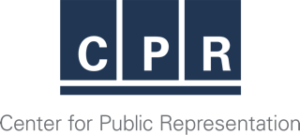Time to Check Your Health Insurance
2019 Open Enrollment:
November 1, 2018
Open enrollment begins
December 15, 2018
Open enrollment ends
January 1, 2019
Coverage begins
If you’re uninsured or looking for more affordable health insurance, the “open enrollment” period is the time to visit healthcare.gov or your state’s marketplace or health insurance exchange. During “open enrollment”, private health insurance options can be reviewed and coverage can be purchased. People with low and moderate incomes may be able to get financial help to pay for health insurance coverage. Assistance to pay for premiums and other cost-sharing may be available for individuals and families, depending on which plan is purchased and the families’ income level. If you get health insurance through your employer, Medicaid or Medicare, you are not eligible for this assistance.
You can also sign up for insurance outside of the open enrollment period, if you lose your job, get married, divorced or have a baby. You may enroll in Medicaid or the Children’s Health Insurance Program (CHIP) at any time.
Do all states have the same open enrollment dates?
No. Some states have longer enrollment periods. States with different ones are listed below:
California: Oct. 15, 2018 – Jan. 15, 2019
Colorado: Nov. 1, 2018 – Jan. 15, 2019
DC: Nov. 1, 2018 — Jan. 31, 2019
Massachusetts: Nov. 1, 2018 – Jan. 23, 2019
Minnesota: Nov. 1, 2018 – Jan. 13, 2019
Rhode Island: Nov. 1, 2018 – Dec. 31, 2018
If you have a disability or a health condition, be sure to ask before you select a plan:
- Are a broad range of health care providers included in the health plan’s provider network?
- Are there enough medical specialists in the network to meet your needs?
- Are the medications you need included in the plan’s list of covered drugs? Has the cost sharing changed? Are there other requirements like prior authorization?
- Is there adequate access to non-clinical, disability-specific services and supports?
- Does the plan have service limits, such as caps or limits on the number of office visits for therapy services?
- Are mental health services covered to the same extent that other “physical” health benefits are covered?
I already have health insurance through the Marketplace. Do I need to do something?
It is important to update your income and household information in the Marketplace to make sure you get the assistance that is available to you.
- This is also a good time to check your health insurance coverage and see if it still meets your healthcare needs.
- If a new plan does not cover your providers or services, seek more information about transitioning from your current provider to a new one.
- You should carefully read all health insurance notices and updates.
- If your income has increased, updating your information with the Marketplace will help avoid paying penalties.
I and/or my family members are uninsured, can we sign up?
Uninsured individuals can go online, enter information and review insurance options. Information on monthly premiums, deductible costs, doctors, hospitals and which drugs are covered by a plan should be available. Enrollment is limited to individuals who live in the United States, are U.S. citizens, nationals, or non-citizens who are lawfully present, and not currently incarcerated. If you have not signed up for an insurance plan, it is important to note that you may be subject to a fee for not having health care coverage.
Most individuals will be able to get health insurance coverage regardless of pre-existing health conditions or prior denial of coverage. However, due to recent federal changes, the marketplace may sell policies that do not include the protections from the Affordable Care Act (ACA). These ACA protections include covering essential health benefits such as rehabilitation or behavioral health and ensuring that plans do not charge people with preexisting conditions more for coverage. It is more important than ever to thoroughly review what benefits a plan offers and what it costs.
Where can I go to get help?
Purchasing health insurance can be complicated. If you or your family member needs assistance with understanding the options, healthcare.gov can help. Each state has health insurance “navigators” to assist individuals with enrollment in health insurance plans. Individual health plan information should be available in late October 2018 on the website. If you would like more information on specific topics, the National Disability Navigator Resource Collaborative has a comprehensive set of materials available on disability issues and the Affordable Care Act.
Website: www.healthcare.gov
Phone: 1-800-318-2596 (Available 24/7 with access to 150 languages)
TTY: 1-855-889-4325
In-Person Assistance Resources: localhelp.healthcare.gov











